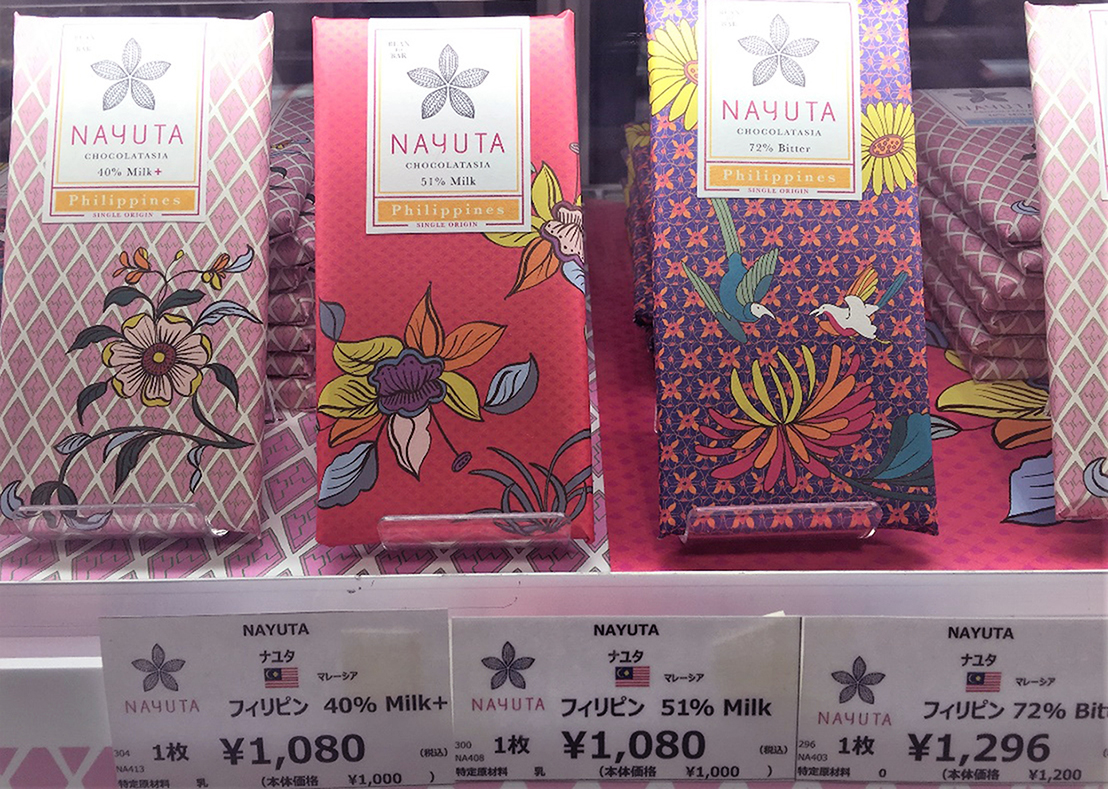The Department of Trade and Industry’s Trade and Investments Promotion Group (DTI-TIPG) and the Philippine Trade and Investment Center in Tokyo (PTIC-Tokyo) shared promising developments for Philippine cacao beans as it enters the mainstream Japanese market through the newly-produced chocolate made by Isetan Mitsukoshi.
Isetan Mitsukoshi Group, Japan’s largest department store group, developed a new chocolate brand named Nayuta Chocolatasia. The product formulated to match the Asian palate, is made from cacao beans sourced from four Southeast Asian countries: Vietnam, Malaysia, Indonesia and the Philippines.
The Philippine cacao beans were sourced from a Davao-based plantation, Philippine’s Plantacion de Sikwate Cacao Producers Association.
As part of Isetan’s Mitsukoshi’s strong campaign for the said chocolate, they are currently running a six-month promotional campaign through a chocolate fair called Salon du Chocolat at their Shinjuku store.
“The presence of Philippine cacao beans in the mainstream Japanese market is a clear manifestation that our produce are truly world-class. With sufficient support and aggressive marketing strategies being implemented by various private and public sector partners, we hope more and more Philippine goods will join the global market,” said DTI Trade and Investments Promotion Group Undersecretary Nora K. Terrado.
According to the Philippine Department of Agriculture, the global demand for cocoa is estimated to reach between 4.7 million to 5 million metric tons by 2020. However, it is also predicted to reach a global shortage at 1 million MT in the same year.
“We see a lot of budding local manufacturers and producers of cacao in the country. We, at DTI, continue to urge them to join trade fairs and avail support services that help them in accessing not just domestic but as well as international markets such as Japan. In this way, we will be able to mainstream Philippine produce while we continue to build the country’s brand globally,” said DTI Trade and Investments Promotion Group Undersecretary Nora K. Terrado.
Undersecretary Terrado also urged producers to tap the DTI and its wide-range of support services with its Philippine Trade and Investment Centers (PTICs) abroad. “DTI assists Philippine companies especially micro, small, and medium enterprises (MSMEs) in getting a glimpse of emerging trends and slowly test and introduce the acceptability of their products in the international market,” Terrado added.
Current efforts and initiatives in developing the Philippine cacao industry are mostly focused in Mindanao, which accounts for 90% of the Philippine cacao production, with 80% coming from the Davao Region alone.
DTI, through its Shared Service Facilities (SSF) program, has provided 16 cacao-processing facilities in various regions that aim to equip and accelerate MSMEs’ competitiveness by giving them access to energy efficient technologies and sophisticated equipment in their production.♦
DTI, through its Shared Service Facilities (SSF) program, has provided 16 cacao-processing facilities in various regions that aim to equip and accelerate MSMEs’ competitiveness by giving them access to energy efficient technologies and sophisticated equipment in their production.♦





